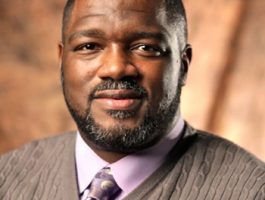
Seasons of Drifting
A panel of experts answers your questions about forgiveness in marriage. Voddie Baucham, Juli Slattery, DA and Elicia Horton, and Ron Deal address difficult situations with truth from Scripture.
Show Notes
About the Host
About the Guest
-
A panel of experts answers your questions about forgiveness in marriage. Voddie Baucham, Juli Slattery, DA and Elicia Horton, and Ron Deal address difficult situations with truth from Scripture.
-
Dave and Ann Wilson
Dave and Ann Wilson are hosts of FamilyLife Today®, FamilyLife’s nationally-syndicated radio program. Dave and Ann have been married for more than 38 years and have spent the last 33 teaching and mentoring couples and parents across the country. They have been featured speakers at FamilyLife’s Weekend to Remember® marriage getaway since 1993 and have also hosted their own marriage conferences across the country. Cofounders of Kensington Church—a national, multicampus church that hosts more than 14,000 visitors every weekend—the Wilsons are the creative force behind DVD teaching series Rock Your Marriage and The Survival Guide To Parenting, as well as authors of the recently released book Vertical Marriage (Zondervan, 2019). Dave is a graduate of the International School of Theology, where he received a Master of Divinity degree. A Ball State University Hall of Fame quarterback, Dave served the Detroit Lions as chaplain for 33 years. Ann attended the University of Kentucky. She has been active alongside Dave in ministry as a speaker, writer, small-group leader, and mentor to countless wives of professional athletes. The Wilsons live in the Detroit area. They have three grown sons, CJ, Austin, and Cody, three daughters-in-law, and a growing number of grandchildren.
-

D.A. and Elicia Horton
D. A. and Elicia Horton have been fighting for their marriage for over 15 years. D. A. is working on his PhD in Applied Theology at Southeastern Baptist Theological Seminary, and Elicia has master’s degrees in Religious Studies and Organizational Development from Calvary Theological Seminary. They teach and serve together at Reach Fellowship, a church plant in North Long Beach, CA, and have been blessed to counsel couples jointly for over 10 years.
Juli Slattery
Dr. Juli Slattery is a widely known clinical psychologist, author, speaker and broadcast media professional. She's the president and co-founder of Authentic Intimacy. She hosts a podcast called Java With Juli, where she answers tough questions about relationships, marriage, spiritual, emotional and sexual intimacy. She has authored eight books, including 25 Questions You're Afraid to As...more
Ron Deal
Ron L. Deal is one of the most widely read and viewed experts on blended families in the country. He is Director of FamilyLife Blended® for FamilyLife®, founder of Smart Stepfamilies™, and the author and Consulting Editor of the Smart Stepfamily Series of books including the bestselling Building Love Together in Blended Families: The 5 Love Languages® and Becoming Stepfamily Smart (with Dr. Gary Chapman), The Smart Stepfamily: 7 Steps to a Healthy Family, and ...more
Voddie Baucham
Voddie Baucham wears many hats. He is a husband, father, former pastor, author, professor, conference speaker, and church planter. He currently serves as Dean of Theology at African Christian University in Lusaka, Zambia. Dr. Baucham holds degrees from Houston Baptist University (BA in Christianity/BA in Sociology), Southwestern Baptist Theological Seminary (M.Div.), Southeastern Baptist Theological Seminary (D.Min.), an honorary degree from Southern California Seminary (D.D.), and additional...more
A panel of experts answers your questions about forgiveness in marriage. Voddie Baucham, Juli Slattery, DA and Elicia Horton, and Ron Deal address difficult situations with truth from Scripture.
Bob: Research shows there’s a spike in the divorce rate when couples begin the empty nest season. Pastor D.A. Horton says there’s a reason for that.
D.A.: Some of the most grievous situations that I’ve been immersed in is empty nest couples, who centered their entire last 20/30 years around kids, and now the cycle of grandkids is now the only thing keeping the couple together. What I’m having to go back and explain to them is that, when you met at sixteen and now your sixty-six/now you’re in your seventies, you’re like sixteen-year-olds still fussing and fighting with each other; and now you’ve replace the children with grandchildren as idols in your lives.
Bob: This is FamilyLife Today for Thursday, March 14th. Our hosts are Dave and Ann Wilson; I'm Bob Lepine. How do you keep from entering the empty nest years and finding yourself isolated from your spouse?—or how do you rebuild romance when you find yourself there? We’ll hear more about that today. Stay with us.
And welcome to FamilyLife Today. Thanks for joining us on the Thursday edition. You guys have done this at your church—right?—where people submit questions about marriage and you just kind of take them, rapid fire?
Dave: Yes; it’s always really fun, Bob. [Laughter]
Bob: Why do you say it like that, Dave?
Dave: Because you never know what you’re going to—actually, it’s awesome—it really is, because people get to ask what they really want answers to. But on the stage, it’s a little scary because you don’t know exactly what’s going to come in; but you know it’s what they want and need.
Ann: We actually did this for our book launch, back in February. Our son, who’s a pastor at our church, as well, actually took the questions—he was interviewing Dave and I. It was a little awkward for him. [Laughter]
Dave: Yes; the first ten questions were all about sex—
Bob: Wow.
Dave: —just like your panel.
Bob: Yes.
Dave: You know, he says: “This is weird. I’m going to talk to my mom and dad about your questions about sex.” [Laughter] But you know what?—we did it.
Bob: We put a panel together on the Love Like You Mean It® marriage cruise, which was also back just a few weeks ago in February. We had Ron Deal, and Juli Slattery, and D.A. and Elicia Horton, and Voddie Baucham joining us. Our listeners will recognize all of those names, because those folks have been guests on FamilyLife Today. Then we invited people on board the cruise to submit their marriage questions.
There were a lot of questions about intimacy in marriage, but there were questions on a wide variety. In fact, you could read the questions and you could tell where the pain points were in a lot of marriages. It was a great evening just to get real and transparent about challenges we face in marriage and how to address those challenges. Our listeners today are going to hear a part of that panel Q&A that we had.
We want to remind listeners—you guys are going to be on the 2020 Love Like You Mean It marriage cruise—
Dave: Yes.
Ann: Yes; excited.
Bob: —Valentine’s week. It’s February 9th-16th, going to St. Thomas in the Virgin Islands, to Puerto Rico, to Coco Cay. It’s a seven-night cruise next year. Along with Dave and Ann Wilson, Dennis and Barbara Rainey will be joining us on the cruise. Dr. Gary Chapman from The Five Love Languages is going to be there. Charlie and Kirstie Dates will be on the cruise. Mary Ann and I are going on the cruise as well.
This month, if you’d like to sign up to join us, if you use the promo code, “CRUISE MADNESS,” you’ll save $400 per cabin—you can come at a reduced rate. We’re
70 percent sold out for next year.
Dave: Awesome!
Ann: That’s amazing.
Bob: We want to make sure FamilyLife Today listeners have a chance. Maybe you’ve got a special anniversary coming up or something you want to celebrate; maybe you want to bring some friends along and have a vacation with other couples—check out the Love Like You Mean It marriage cruise. Go to FamilyLifeToday.com—the information is available there. You can just click on it, and it’ll take you where you can get all the information about next year’s cruise. Again, the website is FamilyLifeToday.com
We’re going to hear Part Two of the panel conversation we had on board the cruise. One of the questions that came in to us was a question from a couple—empty nesters—who are experiencing isolation. They’ve just kind of drifted apart and marriage is not what they thought it would be in this season of their life.
[Recorded Cruise Panel]
Bob: Voddie, I just want to ask you about those seasons when marriages start to drift—you’re just not connecting. You go through an extended stretch; and you wake up and you look at each other and go, “I feel like you are a stranger and we’re disconnected.” You’re in isolation—what do you do in those situations?
Voddie: You know, there’s this certain thing as an indicator species—you know, certain species that, if they’re not doing well, you know there’s something wrong in the ecosystem. I think sex in a marriage is an indicator species. If things are problematic there, it’s an indication that there’s problems elsewhere. I think it’s very important that we recognize that and that we treat it as such: “What is it that is happening in the rest of our relationship that is allowing us to think or not think of each other, you know, in this way?”
Bob: The reality for a lot of couples is—you have kids, a husband’s in a career/a wife’s in a career. You’ve got things pulling you in all kinds of directions. Life gets really busy, and you prioritize those things ahead of the relationship and think the relationship’s going to just be okay. How do we keep that from happening?—and what do we do if that’s where we are in a marriage?
Voddie: Well, one of the things I’ve always advocated is the idea of getting away regularly. Trying to get away and not just to get away—it needs to be with a view toward dissecting and analyzing: “What’s going on with us, spiritually? What’s going on with us, emotionally? What are those things that we need to address?” on a regular basis.
Not only those get-aways but also face time—we need to have regular face time that we schedule/that we plan. You know, you talk about getting out the planner: “We need to schedule and plan that face time.”
Also, there’s a training issue. Our children have to be taught that they are not the priority. We cannot center our life around our children. [Applause] They’re not the center of our world. Our marriage is at the center and our children need to know that. If you prioritize your children over your marriage, repent; repent! Your marriage comes first. It must come first. If you love your children, then love them enough to prioritize your marriage before them; because your marriage is their source of security. Putting them before your marriage is putting their security at jeopardy. Your marriage comes first. [Applause] These types of things: priorities—making that time, that schedule, the plan—dissecting, analyzing, being purposeful. Get away from this whole, you know, like you just addressed, that whole romantic myth that it’s just going to happen—not with life going on all around us.
Bob: Elicia.
Elicia: I just want to also speak to my sisters in Christ; because for a long time in our relationship, I put a lot of stress and pressure on him to always be the one to plan dates and moments of romance. I felt really convicted, like probably year ten; and I really started looking back and saying: “You know what? I’ve allowed busyness to be a part of our rhythm. I’ve allowed those things to creep up. I have allowed my children to be a priority over my spouse, who’s going to be with me long after the children are gone.” Amen?
For that, I really had to repent. But I just wanted to encourage my sisters in Christ—because I’ve done it, and I’ve struggled with it—it’s important. You know, we’ve got these great books that say, “Date your wife.” But, women, we need to date our husbands, too; okay? [Applause] We need to be the ones that, you know, surprise them, and show them that we care for them, and show them that we’re still thinking about them in the littlest ways and the biggest of ways.
I feel like for that—that’s something we have recognized, early on, to say, “Okay; wait a minute. That’s starting to take over this, so what do we need to do to stop that?” I take the responsibility for myself, not blaming it on him; and we both work on that together.
D.A.: The only thing I would piggy back on that is the necessity it is to be plugged in to a local church with other couples that are in similar, syncopated rhythms of life that you’re in. I say that from a pastoral perspective; because some of the most grievous situations that I’ve been immersed in is empty nest couples, who center their entire last 20/30 years around kids, and now the cycle of grandkids is now the only thing keeping the couple together.
What I’m having to go back and explain to them is that, when you met at sixteen and now your sixty-six/now you’re in your seventies, you’re like sixteen-year-olds still fussing and fighting with each other; and now you’ve replaced the children with grandchildren as idols in your lives. The reality of what they need to do is surrender those idols and reconnect with each other. One of the best prescriptions that we’ve given is: “Engage with the other couples in your local church. As you do that, engage with date nights/couple nights—have times that you find things of similar interests. Go to ball games/go to whatever it is; but make sure that you are engaging with individuals that are in a similar rhythm of life but that, also, are in a different season of life.
Honestly, one of the greatest compliments we’ve received, from more seasoned married couples, is that being around us has sparked something that hasn’t been sparked in them in a long time. We get to drink deeply from the wells of wisdom that they have. If they’re telling us, at 76, what they wished they could do at 38, I’m going to tune in so that I can do what they wished they could do at 38, now that I’m 38; so that when I’m 76, I’m not repeating the same mistakes. [Applause]
Bob: I’ll just—I’ll add to that—Mary Ann and I have found that, when we go out with other couples, the pressure is not on the two of us to try to make that night work well for us. Now, if you’re with two or three other couples—you come home; you’ve had a great night together; you’ve found out things about each other that you wouldn’t have found out if those other couples hadn’t been there. It can be a great way—I mean, I think it’s good to have a date night; but sometimes, bring some other couples along on your date night; and that’ll liven things up.
Ron: Truth—you’ve heard truth so much from everybody up here. I just want to add this—let me speak to the low-motivated partner and the high-motivated partner for just a minute. A year ago on this cruise, I stood up here and I told the story about how I chased ministry; and in the process, abandoned my wife in our marriage. It led to a real crisis point for us.
The bottom line is—me, as that person who was well-intended but chasing all the wrong things, had to repent—I had to deal with me. I had to face me in the mirror—I had to recognize that what I thought I was doing was good, and right, and holy, and because it was for God, it was right—my wife just had to deal with it. That was a wrong posture. I needed to change of that, and that was the only way we were going to grow. If you’re that low-motivated person, there is a point, where you’ve got to look in the mirror and deal with you.
Now, if you’re the high-motivated partner—has anybody in here figured out you can’t make somebody want you as much as you want them to want you? If you are that high-want partner—highly motivated—you want to do all this stuff; you want to go to all the groups and the other spouse will not—you know how powerless you are in that situation. What is tempting is for you to beat them over the head, and take them to church, and call the pastor, and: “You need to do this,” and “You need to do that.” For you to, in anger, try to get them to be motivated—that will back fire every time.
What you have to do is approach them with the softness of “I miss you,” because really that’s the truth. Your anger is not the truth; your desire for them is the truth. You lead with that as much as you can—you try to just say: “I’m with you. I get it. There’s something going on. This is hard. I’m not against you; I’m for you. Let’s figure this out together.” Pray like crazy that that then leads to an opportunity with the other person—looks in the mirror and says, “I need to figure this out.”
Bob: Voddie, let me ask you about the issue of betrayal of trust in a relationship. What do we do when there are patterns, where there’s been a significant betrayal of trust? Can trust be rebuilt in a relationship?
Voddie: Not only can it—it must. We are forgiven so we can forgive. Forgiveness is the first piece of that reconciliation puzzle. How many times?—seventy times seven—that’s not a math equation; right? What we can’t expect is to just say it and make it so. Building trust is something that happens over a period of time, and it ebbs and flows.
We have to also remember—and this is why putting the cross at the center of this is so important—that’s why I said, “We are forgiven so we can forgive.” When I am having a problem with forgiving Bridget, I am always being a hypocrite; because I have been forgiven much. I have to remind myself that I’m the same person, who pleads with God for forgiveness, receives God’s forgiveness, and is restored on the regular; and therefore, have the ability and the obligation to pursue that. That doesn’t mean it’s easy; it doesn’t mean it’s quick, but it does mean it’s necessary and it’s possible.
Bob: What do you do if the person you are married to knows you are committed to seventy times seven and they take advantage of that?
Voddie: Yes; you do seventy times seven.
Bob: You just keep getting stepped on?
Voddie: What’s the alternative? See, that’s the question: “What’s the alternative?—I’m not going anywhere.”
Bob: Can I bring some godly accountability into this person’s life?
Voddie: Yes; of course you can, but that’s a separate issue; right? Even if godly accountability is coming into this person’s life, my forgiveness is not contingent even upon them responding to the godly accountability; because they can treat the godly accountability the same way.
If you back things up enough and somebody’s just obstinate, there are not enough things that you can do in order to change someone’s obstinate heart—God has to do that. I have to trust God to do that and rely on what He tells me to do—whether that’s my forgiveness, which is not optional; my pursuit of reconciliation; my pursuit of other means; my trusting God’s people and local church.
All of these things are good; all of these things are necessary—not one of them removes my obligation and responsibility to forgive and pursue reconciliation.
Bob: What did you want to say, Juli?
Juli: Yes; you know, I think we’ve got to distinguish between forgiveness—which is “my right to punish you and to hold you to justice”—I give that over to the Lord. The Lord says: “Vengeance is Mine. Trust Me”; and the second thing, which is reconciliation/rebuilding the relationship. The truth is—when we hurt one another, there are consequences to that. If somebody is unrepentant of that and continues to hurt in significant ways—continues to lie/continues to cheat—then we put—
Bob: —perpetual infidelity.
Julie: —right; we put boundaries in. God does that with us.
Bob: Right.
Julie: We are called to do that with one another, where there’s a confrontation. If your heart remains hard, intimacy is not possible; and we’re not just talking about physical intimacy—spiritual intimacy, emotional intimacy/trusting my heart to you. There are boundaries that we put in place, with godly counsel and with lots of prayer. The boundaries are meant to lead to repentance.
Bob: Damien, what did you want to say?
D.A.: I think a couple of the things is—one, if you are the spouse that is consistently being hurt, never divorce yourself from the ministry of intercessory prayer for your spouse. The war is fought on your knees; and that’s not this over-spiritualized, over-romanticized—I will speak that from my momma’s perspective. I’ve watched her put up with my dad for well over 45 years. That woman is a praying momma, and she is before the Lord on a consistent basis. She is not overbearing on my dad; she loves him, but she communicates her pain—she says: “I want you to look at my eyes. You are hurting me; you are breaking me.”
My dad doesn’t want to see it, but he needs to face those facts—to see that his behavior patterns have instilled decade, upon decade, upon decade of woundedness and hurt in a woman, who has God the Holy Spirit dwelling inside of her, that is giving her the endurance for over the past 45 years to say: “I still love you. I’m still working on rebuilding trust.”
The other nuance that I think that we, also, have to take into consideration is—there’s consequences that resurface. There will be text messages that may come in. What you have to learn to do is communicate and fight, together, for oneness in the midst of consequences that will meld your hearts together so that you can re-establish and rebuild trust over the course of time. Recognize that these consequences—especially, if you are the one who is consistently doing the offending—these consequences are all a result of actions that you willfully moved in. You cannot erase these consequences; but if you are building and re-establishing trust, coupled with the ministry of intercessory prayer, the Lord will surface these things as opportunities for both of your greater dependence on [Him], who lives inside of you, and then also to lean, interdependently, on each other to make it through the eye of that storm.
Bob: I wish we could keep going, but we’ve got to draw this to a conclusion. Thank you guys for your thoughts and for what you’ve shared this evening. Would you thank them? [Applause] Appreciate it.
[Studio]
Well, again, we had a chance to hear a portion of the Q&A time we had on board the Love Like You Mean It marriage cruise with a number of panelists: Ron Deal, Juli Slattery, D.A. and Elicia Horton, and Voddie Baucham—talking about issues that couples are facing in marriage.
That last issue—the issue of rebuilding trust—so many times, when I’m talking with couples, they think that extending forgiveness is supposed to automatically reinstate trust in a marriage relationship. We are called upon to extend forgiveness when our spouse has sinned against us, but the fact that forgiveness has been offered does not mean that trust is ready to be established.
Dave: No; as you guys talked on the panel—it is rebuilt. The scary thing about breaking trust is—it’s broken in a second; and it could take days/months/years to earn back/rebuilt trust. I remember, when we were raising our boys, we never said, “Trust somebody”; we said, “Trust people that earn it.”
Bob: Yes.
Dave: You know, you forgive and you love people; but people have to earn trust back, and it’s a hard deal.
Bob: I do think, Ann—sometimes, there are husbands or wives who refuse to rebuild trust. Really, they’re hanging on to the bitterness or they’re hanging on to the hurt. They say, “Well, I’ve forgiven you,” and you go: “Really? Have you really forgiven me? Is your heart toward wanting to rebuild trust?—or are you continuing to rehearse the hurt and you just say, ‘I’ll never trust that person again’?” If that’s what you’re saying: “I’ll never trust that person again,” then you haven’t forgiven them.
Ann: That’s so true. I think it’s easy to guard our hearts, because we don’t want to be hurt again; we don’t want to feel taken advantage of again. To go before Jesus and to ask Him to give you that heart, because He gives that to us continually—that undeserved forgiveness.
Bob: What do you think? Should we do a Q&A thing next year on the cruise when you guys are on board?
Dave: I would love it!
Bob: Well, we’ll see what the team puts together, but that may be a part of what we do in 2020.
We’ve got the President of FamilyLife®, David Robbins, who has just stopped here and was on board the Love Like You Mean It marriage cruise with us, here, a few weeks ago. You had a good time on the cruise; didn’t you?
David: I did. It’s kind of hard not to; yes.
Bob: These messages were a big part of that.
David: They really were. FamilyLife’s Love Like You Mean It cruise is such a fantastic way to relax; and it is relaxing, but also to renew. The talks that you receive and the different variety of options to grow personally with your relationship with God and with your spouse is such a unique opportunity for your relationship with God and for your relationship with your spouse.
As it turns out, God does work in some pretty powerful ways. Dave and Valerie are one of those couples, who came on the cruise last year—they actually came with their divorce papers signed.
Bob: Yes; I remember hearing about this. This was powerful.
David: Fast forward, a week after the cruise—they sent a bottle of ashes to our team, here, at FamilyLife. It said: “Here’s our burned divorce papers. Thank you, FamilyLife, for the ways that you poured into our marriage on the cruise.”
It was great to see Dave and Valerie back, this year, on this year’s cruise, celebrating a year of redemption and a year of restoration. It was both honest and really beautiful to see them share how hard restoration continues to be in some ways; but yet, to see the hope they exuded and the joy that they expressed about their marriage growing and continuing to thrive.
Bob: It was powerful; wasn’t it?
David: It really was.
Bob: Most of the people who come on the cruise are not in desperate situations, coming with their divorce papers. Most of the people are coming to build an already strong marriage—make it even stronger—that kind of regular marriage maintenance.
We hope that our listeners will be part of the 2020 Love Like You Mean It marriage cruise. We’re about 70 percent sold-out for that cruise. For the next couple of weeks, we’re making a special offer to FamilyLife Today listeners. You can join us on board the Love Like You Mean It marriage cruise and save $400 per couple off your stateroom. Go to FamilyLifeToday.com for more information—use the promo code, “CRUISE MADNESS,” to take advantage of this special offer—and find out more about all the plans for 2020: the speakers, the new cruise ship we’re going to be on, the ports we’ll be attending. Again, all the information is available on our website at FamilyLifeToday.com; or call if you have any questions: 1-800-FL-TODAY. Again, be sure to take advantage of the special offer—secure a stateroom next year for the cruise and save $400 per couple off the stateroom fee when you contact us between now and March 25th.
Now, tomorrow, we’re going to share a challenge with you that we heard on board the Love Like You Mean It marriage cruise from Voddie Baucham. He was challenging husbands to regularly pray with and for your wife. We’ll share that with you tomorrow. I hope you can be back with us for that.
I want to thank our engineer today, Keith Lynch, along with our entire broadcast production team. Special thanks to Justin Adams for all his help with this week’s programs. On behalf of our hosts, Dave and Ann Wilson, I'm Bob Lepine. We will see you back next time for another edition of FamilyLife Today.
FamilyLife Today is a production of FamilyLife of Little Rock, Arkansas; a Cru® Ministry. Help for today. Hope for tomorrow.
We are so happy to provide these transcripts to you. However, there is a cost to produce them for our website. If you’ve benefited from the broadcast transcripts, would you consider donating today to help defray the costs?
Copyright © 2019 FamilyLife. All rights reserved.
1



